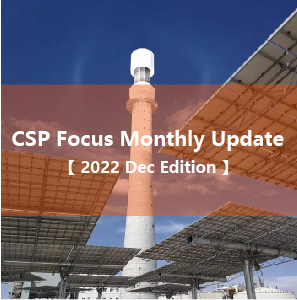Home > Market > Other Regions > Here
DEWA wants more companies to step up to solar
2018.02.12 From: Arabian Business
Dubai wants 75 percent of electricity production to come from clean energy sources. DEWA is looking at businesses to deliver on the pledge.

For 20 years, an unassuming poultry farm nearly 50 km south of Dubai has quietly lumbered on, garnering recognition within the UAE’s agriculture industry but making hardly any news beyond.
Founded in 1994, Al Rawdah Farms is the largest poultry farm in the UAE and a subsidiary of the larger Emirates Rawabi Group. It processes 40,000 kilograms of chicken each day and maintains a 35 percent market share that even its consumers would be surprised to hear about.
But in December it decided to jump headlong into helping Dubai harness the power of the one resource no one expects to have to plan a contingency for: the sun.
No more than 20 people attended what could well have been mistaken for a routine affair, but the presence of the CEO of Dubai Electricity and Water Authority (DEWA) at the opening of Al Rawdah’s solar facilities was evidence that this was no ordinary announcement.
By flipping on the solar switch at its farm near Al Lissaili, Al Rawdah is looking to guarantee its sustainability and deliver on Dubai’s plan to produce a majority of its energy needs through renewable energy.
“We are proud to be the first poultry farm in the UAE to move to solar energy,” said Abdalla Sultan Alowais, Chairman of Al Rawdah at the announcement. “To us, this is just the beginning of a transformative journey into the future. The decision to turn to solar is in line with the UAE’s vision of a sustainable future made possible by adopting renewable and clean energy sources.”

At the Jebel Ali Freezone, DP World is installing 88,000 solar panels to provide over half its energy requirement
Moving to solar will reduce the company’s operational costs, something Al Rawdah’s chairman mentioned in his presentation had a large impact on the decision. Built at a cost of AED four million, the 1MW field’s 3,840 photovoltaic panels provide 16 percent of the energy required to run the entire farm. By 2020, 60 percent of the company’s total energy will come from solar as it installs even more panels at its other farm in Liwa.
But with the announcement Al Rawdah wanted to do something a bit grander: “With this transition, Al Rawdah aims to inspire other companies across industries to adopt renewable energy sources for a better future,” according to Rashid Dafalla, CEO, Al Rawdah. “This pilot project is certainly a move in the right direction.”
Companies like Al Rawdah picking up the solar banner are exactly what Dubai needs to help realise its clean energy ambitions, DEWA’s CEO, Saeed Mohammed al Tayer, told CEO Middle East.
“Right now we have 4,500 sq ft in terms of total area allocated to solar power production. Like this field, we need every home and building to pitch in to reach our 2050 percent target,” he says.
DEWA’s target, part of Dubai’s 2050 Clean Energy Strategy, is ambitious: generate seven percent of the Emirate’s energy needs from renewable sources including solar by 2020, before the target swells over threefold to 25 percent in the next 10 years, then another threefold to 75 percent by 2050. Solar is earmarked to provide 25 percent of energy production in 2030.
The eventual target is why DEWA is pushing as aggressively as a company tasked with delivering on Dubai’s ambitions can be expected to, Al Tayer acknowledges. “We have to be,” he insisted, more than once.
In September, DEWA announced it would build the world’s biggest single-site concentrated solar power project (CSP) in Dubai. To cost AED 14.2 billion, the CSP will deliver 700MW of energy when completed and is ultimately part of the Mohammed Bin Rashid Solar Park which plans to deliver 1,000 MW in power by 2020, and 5,000 by 2030.
DEWA’s massive investments in solar will go a long way to meeting the targets–The MBR Solar Park, for instance, should deliver 1,013MW of energy once the 800MW third phase of its development is completed in 2020. But with limited land that can be allocated to more solar fields, the authority is urging businesses and homes across Dubai to step up and pitch in to do their part in getting Dubai’s eventual sustainable energy dreams off the ground.
At a cost, DEWA’s Al Shams project, through approved contractors, will help businesses – and homes – install solar panels to bring electricity bills down, and contribute to the clean energy provision strategy. If all the major businesses in Dubai were to get on to the programme, a significant chunk of Dubai’s energy needs – currently increasing at a rate of five percent per year – would come off the fossil fuel grid, which is exactly what DEWA is hoping to achieve.

Al Rawdah aims to power 60 percent of its energy needs via solar energy
Al Rawdah’s plans will help, but DEWA needs more businesses to pick up the solar banners. Reception had been lukewarm, but is beginning to pick up; a few of the country’s major power consumers such as Dubai Airports, Dubai Municipality, and DP World with Jebel Ali Freezone number among the 63 companies that have agreed to enrol in the Shams Initiative.
However, the initiative “is progressing” and uptake will improve as more companies see benefits in the move, Al Tayer said. Precedent might indicate the future has room for optimism, according to him. “The cost of labour, materials, and technology is improving so we think companies will see bigger value in this,” he says. “In terms of power generation, when we started in 2013, the efficiency [of the panels] was three percent. Today, the technology has improved to 15 percent and might even reach 17 percent. This will reduce space constraints.”
There is also a consequent reduction in the costs of solar power that Dubai has been able to register, and that should impact the uptake of solar power around the Emirates. “The CSP project was initially tendered at 15 cents, but we were able to get 7.3 cents per KW,” he says.
Based on history, Al Tayer is confident, DEWA will be able to exceed the 2020 target “by delivering 9 percent,” he says. “2030 will be easy, as well.”
In fact, what he’d like is to accelerate the master plan for solar from 2050 to 2030. “Maybe it will be achievable. Maybe we’ll need to export power out of Dubai to help reduce the cost of our investment. Let’s see,” he says.
Relevant CSP Conference:2018 CSP Focus Conference(March 22-23 Beijing)
More from CSP Focus
NextShanghai Electric analyzes Dubai 700MW concentrated solar power project
Solar Energy – the key to tackling climate change and meeting increasing energy demands
Tenders are a force in driving down Concentrated Solar Power prices
Price of Concentrated Solar Power to drop to $60/MWh by 2020, IRENA predicts
Dewa awards advisory contract for Dubai’s Mohammed bin Rashid Al Maktoum Solar Park
Leave your thoughts here
Reports(Member Only)
See more+-
CSP Focus Membership Proposals
We are now proposing CSP Focus Membership, hoping to better serve our members to keep pace with the latest updates of ongoing CSP projects worldwide, and to establish and maintain business relations with major shareholders of the projects. CSP Focus offers to Membership exclusive access to:1. Daily/Weekly update and analysis on CSP policies, projects, technologies, market trend and corporate relea
-
The Latest CSP Focus Monthly Update
Join CSP Focus Membership to Get the Latest CSP Focus Monthly Update December Edition.
-
CSP Project Monthly Update 2022 December Edition
CSP Focus is presenting CSP Project (China) Update 2022 December Edition.Detail report is available for CSP Focus Membership.
-
Presentations-CSP Focus China 2021
The Report is for CSP Focus Members only.
Upcoming Events
See more+-
12th CSP Focus China 2022
2022.04.21-22 Beijing
-
11th CSP Focus China 2021
2021.10.28-29 Beijing
-
10th CSP Focus China 2020
2020.10.22-23 Beijing, China
Project Updates
See more+-
Lanzhou Dacheng Dunhuang CSP Project
Asia Pacific-China,Operational,Parabolic Trough
-
Luneng Haixi 50MW Molten Salt Tower CSP Project
Asia Pacific-China,Operational,Power Tower
-
Dubai 950MW NOOR Energy 1 CSP+PV Project
MENA-UAE,Under construction,Power Tower
-
Power China Gonghe 50MW Molten Salt Tower CSP Project
Asia Pacific-China,Operational,Power Tower





